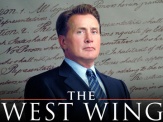
As McCombs and Shaw wrote 42 years ago, “[i]n choosing and displaying news, editors, newsroom staff, and broadcasters play an important part in shaping political reality. Readers learn not only about a given issue, but also how much importance to attach to that issue from the amount of information in a news story and its position” (1972).
This was certainly true here in Quebec on Monday, when the Parti Québecois (PQ) party was unceremoniously booted from power in grand fashion. Reduced to just 30 of Quebec’s 125 seats, the PQ’s casualties included a slew of ministers and even the party leader, who fell in a riding held by the party for two decades. Despite polls that hinted at a possible loss for the party, no one seems to have anticipated the magnitude of the PQ’s collapse.
 I won’t delve too deeply into provincial history, but the PQ was founded in 1967 with the sole purpose of promoting Quebec’s separation from Canada. As the cause’s popularity waned, the PQ worked to reframe itself as a left-wing party that would stand up for Quebec within Canada for the time being, and only pursue independence when they judged the time right. That strategy — paired with a proposed France-style “secular charter” banning religious clothing in public institutions — brought them a great deal of support in rural Quebec, where uneven riding distribution — some would say gerrymandering (Allison, 2014) — has given thinly populated rural ridings disproportionate clout in the provincial legislature. As late as mid-March, the PQ’s victory seemed imminent.
I won’t delve too deeply into provincial history, but the PQ was founded in 1967 with the sole purpose of promoting Quebec’s separation from Canada. As the cause’s popularity waned, the PQ worked to reframe itself as a left-wing party that would stand up for Quebec within Canada for the time being, and only pursue independence when they judged the time right. That strategy — paired with a proposed France-style “secular charter” banning religious clothing in public institutions — brought them a great deal of support in rural Quebec, where uneven riding distribution — some would say gerrymandering (Allison, 2014) — has given thinly populated rural ridings disproportionate clout in the provincial legislature. As late as mid-March, the PQ’s victory seemed imminent.
Enter Pierre-Karl Péleadeau, the media mogul I’d mentioned earlier on this blog, who entered the race as a star PQ candidate and seems to have lost the election almost all on his own. There are a couple of reasons for this — plenty of Quebecers despise him for launching a two-year lockout of a newspaper’s staff, for example — but the biggest reason seems to be that in his first speech as a candidate, he proclaimed his support for an independent Quebec.
This should hardly seem strange for a PQ candidate — independence is, after all, the party’s raison d’être — but the opposition parties seized on his comments to warn of an impending separation if the PQ won power. For the three weeks leading up to the vote, Quebec’s English- and French-language news media seemed to report on little else, turning the election into a referendum on Quebec sovereignty. Pro-independence media outlets proclaimed it was time to cut ties with Canada. The federalist (pro-Canada) media fretted over the damage that separation could do. With one blundering speech, the agenda for the entire provincial election was set by one man — wiping health care, the economy, higher education, and even (to some extent) the ban on religious clothing off the issue table. It was all over radio, TV, newspapers and the Internet.

That in itself might not have been a crippling blow, but as the PQ leader backtracked from Péladeau’s comments for fear of alienating voters, big segments of the PQ’s small hardcore separatist base flocked to independence-minded fringe parties, who pulled in some 10% of the vote. Plenty of other former PQ supporters switched to the CAQ party, dismayed by Péladeau’s discussion of independence. Incredibly, the PQ lost both pro-independence AND anti-independence votes.
The result: between March 17 and the April 8 election, the PQ plummeted in the polls, hurtling from majority government territory (Grenier, 2014) to a momentous, historic defeat — all because of one man, one toxic issue, and the incessant way Quebec’s media covered both. Immediately afterwards, the media proclaimed that Quebecers had rejected sovereignty once and for all (Perreaux, 2014; Coyne, 2014), despite the fact that the election was won and lost on an issue that all the major party leaders essentially agreed on.
All this to say, Quebec is a truly strange place. : )
References
Allison, S. (2014, April 2). Sam Allison: Quebec’s gerrymandered riding map. National Post. (Retrieved from: http://fullcomment.nationalpost.com/2014/04/02/sam-allison-quebecs-gerrymandered-riding-map/)
Coyne, A. (2014, April 7). Andrew Coyne: Quebecers not only just said no to separation, but yes to the 1982 Constitution. National Post. (Retrieved from: http://fullcomment.nationalpost.com/2014/04/07/andrew-coyne-quebecers-not-only-just-said-no-to-separation-but-yes-to-the-1982-constitution/)
Grenier, E. (2014, March 17). Liberals gain among francophones, but PQ still in majority territory. Threehundredeight.com. (Retrieved from: http://www.threehundredeight.com/2014/03/liberals-gain-among-francophones-but-pq.html)
Lévesque, R. (1976). For an Independent Quebec. Foreign Affairs, 54, 734. (Retrieved from: http://www.foreignaffairs.com/articles/26074/rene-levesque/for-an-independent-quebec)
McCombs, M. E., & Shaw, D. L. (1972). The agenda-setting function of mass media. Public opinion quarterly, 36(2), 176-187. (Retrieved from: http://www4.ncsu.edu/~amgutsch/Mccombs.pdf)
Perreaux, L. (2014, April 7). Solid Liberal majority means respite from national-unity debate. Globe and Mail. (Retrieved from: http://www.theglobeandmail.com/news/politics/elections/solid-liberal-majority-means-respite-from-national-unity-debate/article17870091/)







